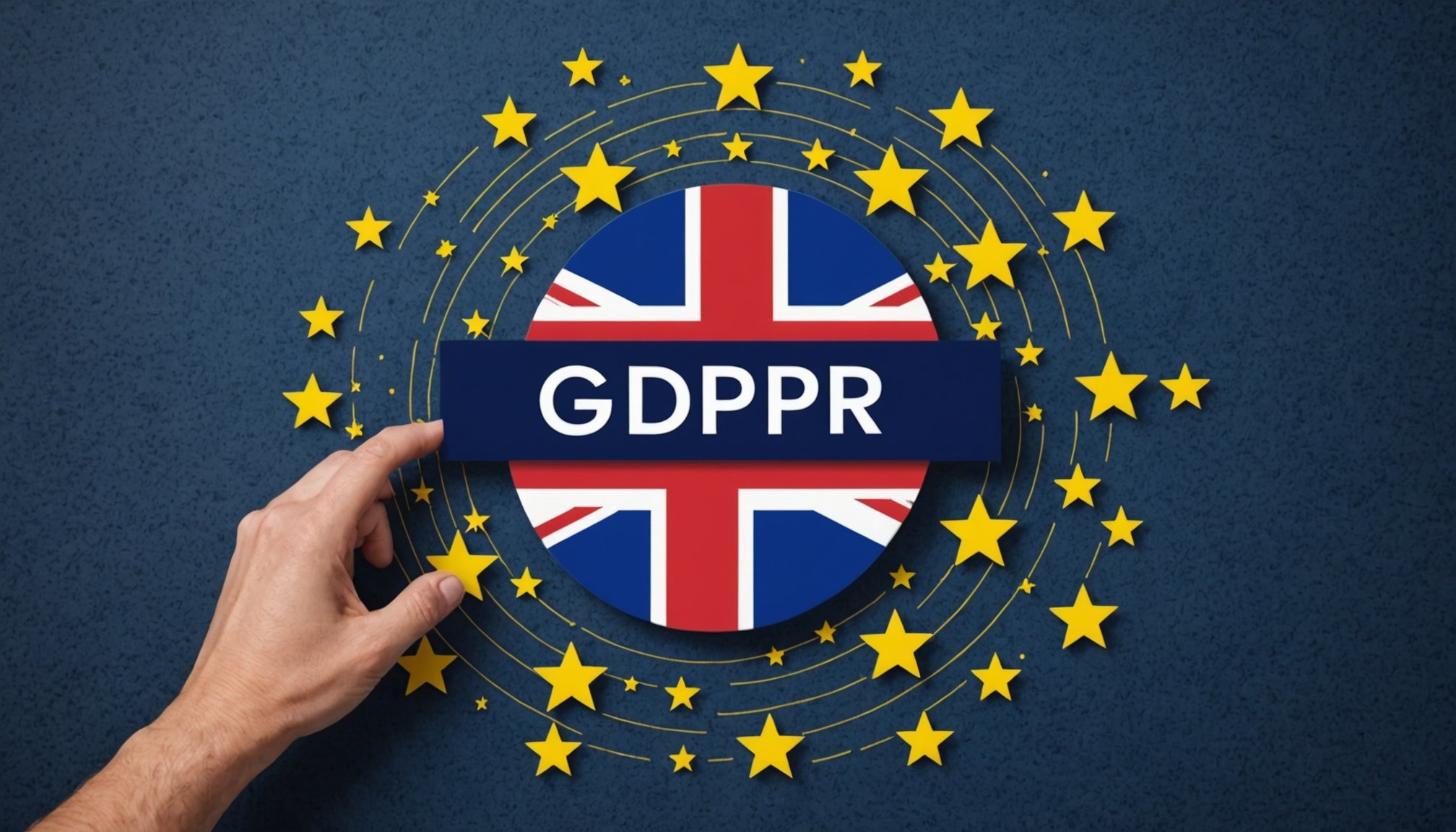Understanding GDPR Provisions and Their Importance in the UK
The General Data Protection Regulation (GDPR) plays a crucial role in the UK’s data protection landscape. Designed to harmonize data privacy laws across Europe, it shields citizens’ privacy and reshapes how organizations approach data management. At its core, GDPR emphasizes transparency, asking businesses to deal openly with users about who accesses their data and for what purpose.
GDPR has far-reaching effects on UK data protection practices, directly influencing marketing strategies. A key aspect is the requirement for valid ‘consent’ from individuals before their data is used or processed. Marketing campaigns must, therefore, be strategically planned to comply with such provisions. Additionally, the concept of data minimization encourages businesses to collect only necessary information, ensuring efficiency and respect for user privacy.
This might interest you : Unlocking neuromarketing: strategies for businesses to enhance their approach
Compliance is non-negotiable for UK businesses, as breaching GDPR can lead to heavy fines. Beyond financial penalties, failure to comply can harm a company’s reputation and customer trust. Conversely, adhering to GDPR provisions is an opportunity for businesses to bolster consumer trust, which, in turn, enhances business credibility and loyalty. For UK companies, aligning with GDPR is not just legal compliance—it’s an integral strategy for sustainable business growth.
Case Studies: Impact of GDPR on UK Businesses
The introduction of GDPR has significantly impacted UK businesses, particularly in the realm of marketing. This section explores both positive and negative outcomes experienced by these businesses, offering lessons in compliance and strategy.
This might interest you : Unearth Hidden Literary Gems: A Pinterest Playbook for UK Indie Bookshops Featuring Rare and Vintage Finds
Positive Outcomes of Compliance
Successful adaptation to GDPR provisions can enhance consumer trust and engagement. Businesses that have realigned their marketing strategies to emphasize transparency and data protection have often seen increased loyalty. For instance, companies that implement consent-driven campaigns align with GDPR’s core principles while successfully targeting consumers. Respecting data privacy increases a brand’s credibility, ultimately fostering deeper customer relationships.
Negative Outcomes of Non-Compliance
On the flip side, the stakes are high for businesses failing to comply with GDPR requirements. Numerous case studies reveal companies that ignored data protection received severe fines and reputational damage. Lessons from these businesses highlight the necessity of revisiting marketing strategies to incorporate GDPR provisions. Such strategy disruptions can be costly, emphasizing that GDPR compliance should be a business priority.
Understanding these multifaceted impacts is crucial for companies seeking to navigate the complex landscape of UK data protection laws. By examining both compliance and violations, businesses can better strategize to align with regulatory expectations and protect their commercial interests.
Compliance Requirements for UK Businesses
Achieving GDPR compliance is essential for UK businesses, especially within marketing strategies. Companies should implement clear steps to align with these regulations. Firstly, obtaining explicit consent before collecting or processing personal data is crucial. Consent must be informed, specific, and freely given by individuals. Additionally, businesses should implement a robust process for managing consent, including options for users to revoke it.
Data protection officers (DPOs) play a pivotal role in overseeing compliance. Appointing a DPO can aid in effectively managing and safeguarding data practices. Their responsibilities include conducting regular compliance audits, training employees on data privacy fundamentals, and acting as a liaison with regulatory bodies.
Non-compliance with GDPR can have severe consequences, ranging from hefty financial penalties to reputational damage. Fines can amount to 4% of global turnover or €20 million, whichever is higher, emphasizing the cost of negligence. To avoid these pitfalls, ongoing training and education on GDPR obligations for employees are vital.
By prioritising these steps, UK businesses can embed GDPR principles into their operations, mitigating risks and setting a foundation for trust and accountability. This preparatory approach not only ensures compliance but also enhances business resilience in a data-driven marketplace.
Practical Strategies for Adapting Marketing Approaches
Incorporating GDPR provisions into marketing strategies requires thoughtful adaptation. One essential practice is consent management, where companies ensure that individuals clearly agree to data collection. Implementing streamlined consent processes enhances transparency, fundamental to GDPR’s core principles. Businesses must offer users control over their data, including easy options to withdraw consent.
To navigate GDPR compliance effectively, companies should focus on anonymized data. By using data that can’t be traced back to individuals, marketers can collect significant insights while maintaining privacy. This approach allows for the development of personalized campaigns without compromising user security.
Techniques in data collection also demand reevaluation. Businesses must embrace methods that respect user privacy, such as placing emphasis on data minimization. This involves capturing only the information necessary, thus reducing the risk associated with excessive data storage.
Personalized marketing remains viable within the confines of GDPR. By employing techniques like segmentation and behaviour analysis while keeping data anonymized, companies can still engage effectively. The challenge lies in finding that balance—upholding data protection practices while crafting meaningful consumer interactions.
Ultimately, staying informed on GDPR updates is vital for businesses to remain compliant, adapt successfully, and maintain competitive advantage.
Recent Updates to GDPR and Future Implications
Recent changes to the GDPR regulations promise to reshape marketing strategies for UK businesses. Among these updates, stricter enforcement on data privacy measures highlights the need for transparency. For instance, companies are now expected to simplify privacy notices, ensuring consumers understand how their data is used. In practice, this means clear and concise communication that builds consumer trust and reduces ambiguity.
These updates signal significant future trends in data protection and marketing compliance. As data privacy expectations rise, businesses must adopt innovative solutions such as leveraging anonymized data. This approach allows marketers to draw insights without compromising individual privacy, paving the way for more secure personalized advertising.
Moreover, future marketing strategies must incorporate robust consent management frameworks to accommodate potential regulatory changes. Companies should prepare for more dynamic compliance environments, where flexibility and agility are key. This proactive stance will not only ensure compliance but also strengthen consumer relationships.
Understanding these changes is crucial for adapting marketing strategies effectively. By focusing on these areas, UK businesses can remain at the forefront of GDPR compliance, maintaining a competitive edge while respecting user rights. Embracing these updates will ultimately result in more resilient and consumer-friendly marketing approaches.
Balancing Data Protection and Marketing Effectiveness
Navigating the intersection of data privacy and marketing effectiveness presents unique challenges for today’s businesses. At the heart of this issue is how to engage consumers effectively without infringing on their privacy rights. Balancing these priorities requires innovative strategies that not only comply with GDPR but also maintain customer interest.
One major challenge is ensuring transparency while collecting data. Companies must inform users about data usage clearly, building trust through honest communication. This transparency is vital in fostering brand loyalty and encouraging consumer engagement.
Strategies that maintain consumer engagement include employing data in insightful yet non-intrusive ways. By using segmentation and behavioural analysis, businesses can personalize marketing efforts in a manner that respects privacy. Effective strategies involve anonymizing data to extract valuable insights without compromising individual security. This approach allows marketers to tailor their communications while ensuring compliance with privacy standards.
Moreover, upholding data privacy principles through consistent engagement methods can solidify a brand’s integrity. This emphasis on respecting user data fosters a positive relationship between businesses and consumers. To thrive, companies must not only focus on protecting data but also ensure marketing strategies align with evolving consumer expectations, ultimately enhancing both credibility and customer experience.











